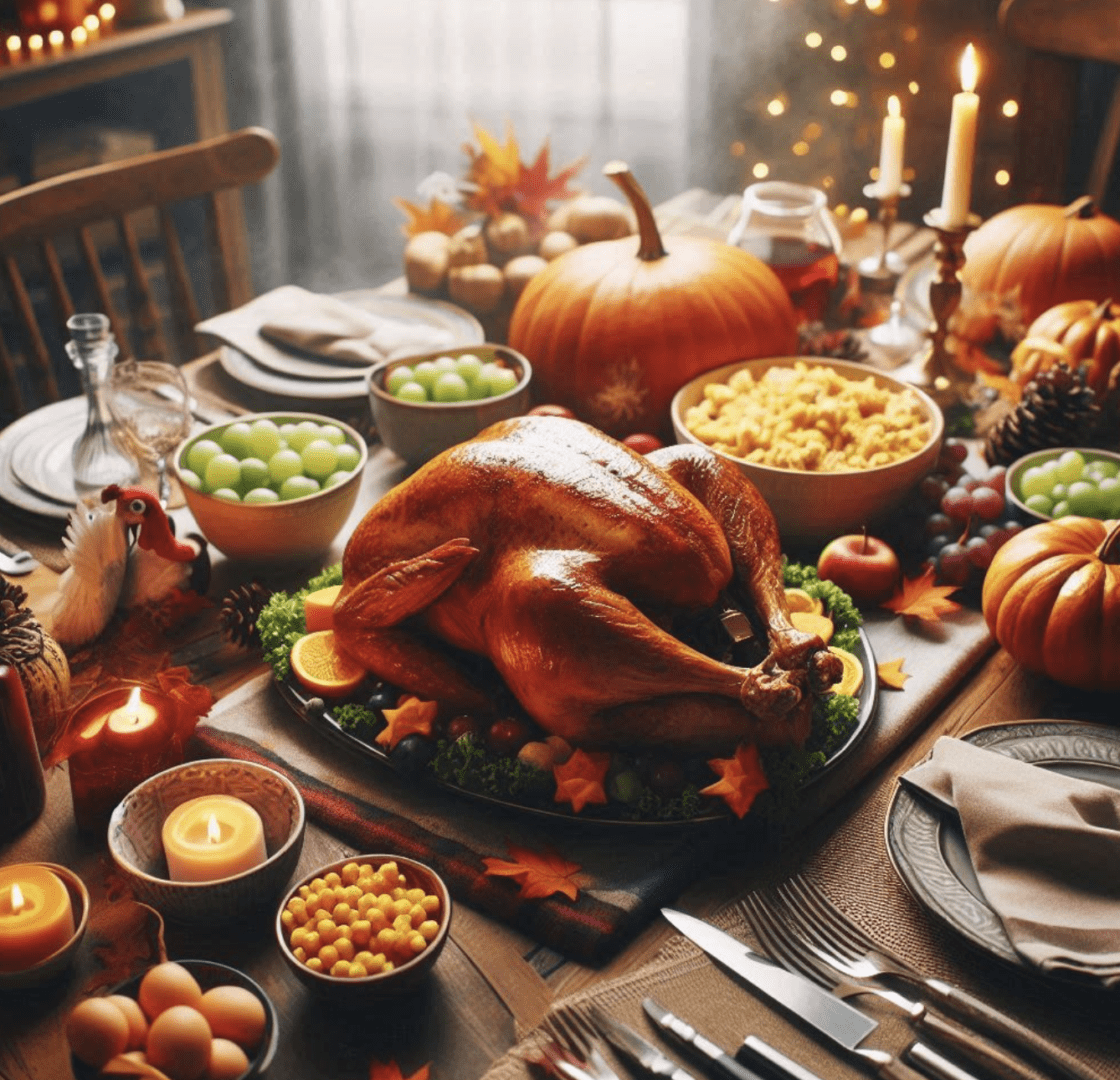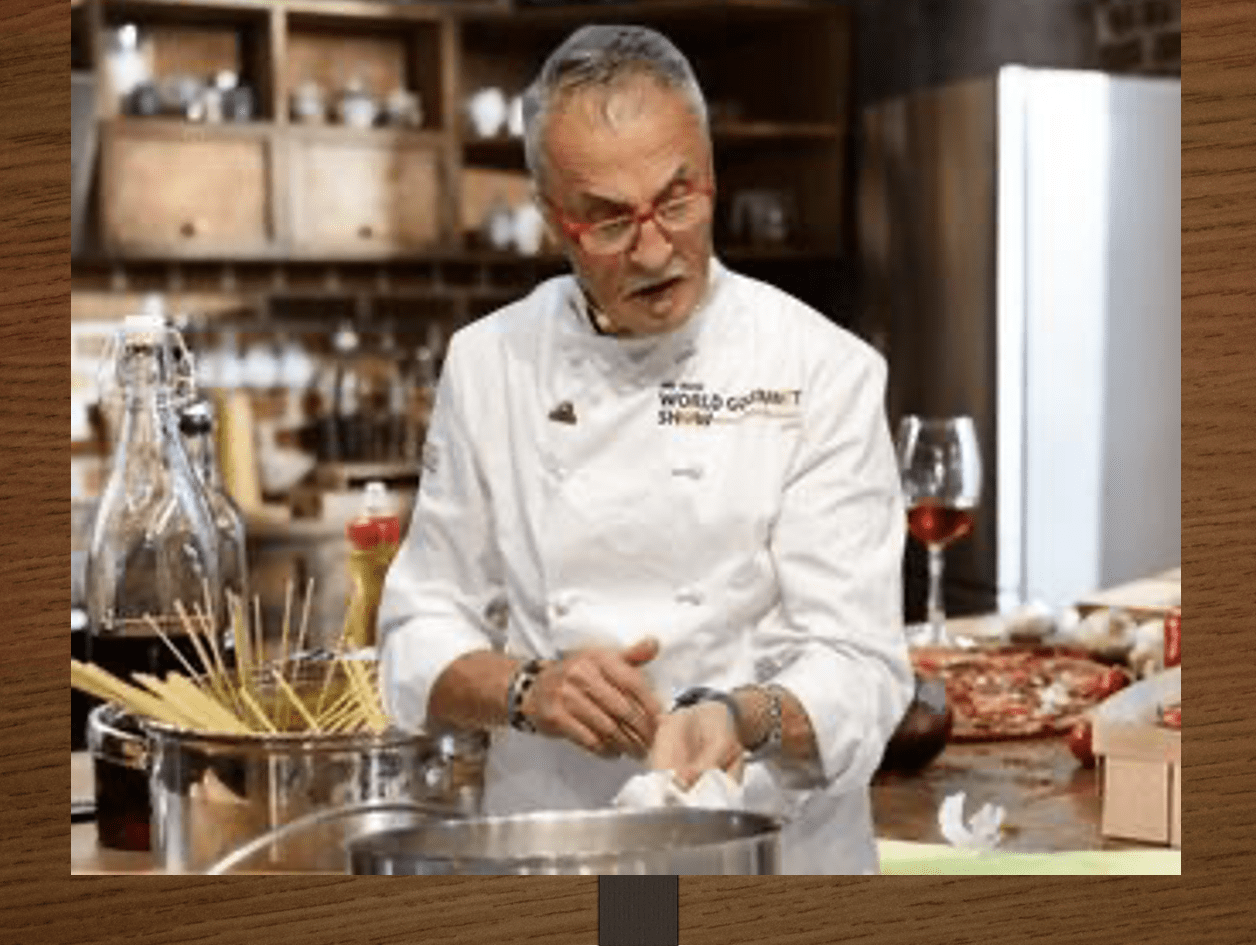Search Posts
Recent Posts
- Dr. Rosemary Costigan Named President of Community College of Rhode Island June 19, 2025
- RI Veterans: Did you know? 19.06.25 (Military Funerals, Job Fair, Benefits, Events) – John A. Cianci June 19, 2025
- East Providence First in U.S. to Equip All Firefighters with PFAS-free Gear June 19, 2025
- We Cook! Mill’s Tavern Saffron Bouillabaisse with Tarhana Lobster Jus June 19, 2025
- Rhode Island Weather for June 19, 2025 – Jack Donnelly June 19, 2025
Categories
Subscribe!
Thanks for subscribing! Please check your email for further instructions.

Ask Chef Walter: Thanksgiving turkey common mistakes – Walter Potenza
by Chef Walter Potenza, contributing writer
Properly thawing, brining, and seasoning your turkey, using a meat thermometer, and avoiding overcooking are essential to creating a memorable Thanksgiving feast.
Friends:
Thanksgiving is a time for gratitude and togetherness, and the centerpiece of this beloved holiday is often the Thanksgiving turkey. Preparing a delicious and perfectly cooked turkey can be intimidating, especially for those new to the kitchen. However, with careful planning and an awareness of common pitfalls, you can ensure your turkey is a succulent, mouthwatering success.
Let’s explore some of the most common mistakes to avoid when cooking a Thanksgiving turkey.
- Not Thawing the Turkey Properly
One of the most common mistakes when cooking a Thanksgiving turkey is needing more time to thaw properly. Suppose you have a frozen turkey that you want to cook. In that case, following a suitable defrosting method is essential to ensure a safe and delicious meal. The recommended way to defrost a turkey is to place it in the refrigerator, allowing enough time for the bird to thaw thoroughly. Allow 24 hours of thawing time for every 4-5 pound turkey for best results. This will ensure the bird defrosts evenly without promoting bacterial growth.
Regarding food safety, there are a few essential steps to defrosting a turkey. Instead of using room temperature or warm water, which can lead to uneven thawing and harmful bacteria growth, it’s best to use proper defrosting techniques. By doing so, you can ensure that your turkey is safe to consume and ready to be prepared for a delicious meal. It’s worth noting that starting with a partially frozen turkey may result in uneven cooking. This means that the outer part of the turkey may get overcooked while the inner part remains undercooked. By defrosting your turkey correctly, you can ensure that your Thanksgiving or holiday meal is a success and that your guests are treated to a delicious, evenly-cooked turkey.
- Neglecting to Brine
Brining is soaking the turkey in a saltwater solution before cooking. This step can significantly enhance the flavor and moisture of your turkey. Brining is a process that can transform your Thanksgiving turkey into a succulent and delicious masterpiece. By soaking the turkey in a solution of water, salt, sugar, and various spices and herbs, you can infuse it with an array of complex flavors and make it incredibly juicy and tender. The brine enhances the turkey’s flavor and locks in moisture, ensuring it remains moist and flavorful throughout cooking. Elevate your Thanksgiving turkey game by taking the brining step.
- Overcooking the Turkey
Overcooking the turkey is a standard error that can result in a dry and tasteless bird. To cook a turkey perfectly, using a meat thermometer and following the recommended internal temperature guidelines is essential. For a perfectly cooked and flavorful turkey, keeping track of its internal temperature throughout the cooking process is crucial. Achieving the perfect turkey can be daunting, but measuring the temperature at the thickest parts of the thigh and breast can help you achieve a moist, juicy, and delicious turkey that your guests will love. It is recommended that you aim for an ideal temperature of 165°F (74°C) for the thigh and 160°F (71°C) for the breast. Once the turkey reaches these temperatures, it is time to remove it from the oven to prevent overcooking.
- Not Using a Meat Thermometer
Not using a meat thermometer is a significant mistake when cooking a Thanksgiving turkey. Relying solely on cooking times or the color of the turkey’s skin can lead to overcooked or undercooked meat. If you want your turkey to be safe and mouthwatering, using a meat thermometer is highly recommended. By inserting the thermometer into the thickest part of the turkey and avoiding the bone, you can accurately measure the temperature and adjust the cooking time as needed. This will help you to achieve the perfect level of doneness for your turkey, allowing you to serve a scrumptious and satisfying meal for everyone.
- Opening the Oven Too Often
Opening the oven door frequently to check on the turkey can be a significant mistake. Every time you open the oven, you let heat escape, causing fluctuations in temperature that can result in uneven cooking. Using a timer or meat thermometer instead of constantly peeking is best.
- Not Resting the Turkey
After taking the turkey out of the oven, it’s essential to rest for at least 20-30 minutes before carving. Resting the turkey after cooking redistributes its juices, resulting in a more flavorful and moist bird. Carving it too soon can cause the juices to be lost, leading to drier meat.
- Neglecting Seasoning and Flavoring
Another common mistake is not correctly seasoning or flavoring the turkey. While some like to keep it simple with salt and pepper, others experiment with various herbs, spices, and even butter under the turkey’s skin. Season your turkey according to your preferences, but remember to add some flavor.
- Not Using a Roasting Rack
Placing the turkey directly on the roasting pan without a rack can lead to uneven cooking and soggy skin. A roasting rack elevates the turkey, allowing hot air to circulate it and ensuring it cooks evenly. This also prevents the turkey from sitting in its juices, which can lead to the skin becoming less crispy.
- Failing to Tent the turkey
Tenting the turkey with aluminum foil during cooking is crucial for preventing the skin from getting too brown too quickly. If you pay attention to this step, the skin may become overly crispy while the inside is still cooking, leading to an uneven outcome.
Final thoughts
Thanksgiving turkey is the focal point of the holiday table, and while preparing it may seem daunting, avoiding these common mistakes can help ensure a delicious and perfectly cooked bird. Properly thawing, brining, and seasoning your turkey, using a meat thermometer, and avoiding overcooking are essential to creating a memorable Thanksgiving feast. By being mindful of these potential pitfalls and following a reliable recipe, you’ll have a Thanksgiving turkey that will be the centerpiece of a delicious and joyful celebration.

www.flavorsandknowledgetours.com

___

Meet Chef Walter!
There is a constant, recognizable thread in the career of Walter Potenza to elevate the level of Italian culinary culture in the United States. Besides his unquestionable culinary talent and winning business perspective, Chef Walter has been a relentless educator with passion and knowledge who defeats stereotypes. His life, career, and values are a model, an example to follow by any chef of Italian gastronomy working outside Italy.
Chef Walter appears regularly on National and International Networks such as Food Network, ABC, CBS, NBC, RAI, FOX, and Publications such as NY. Times, Washington Post, Wall Street Journal, Food & Wine, Saveur, Gourmet, and several Italian media outlets. And now – RINewsToday!

